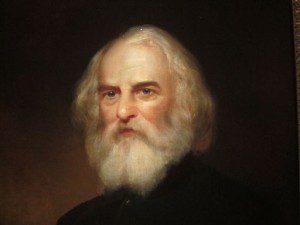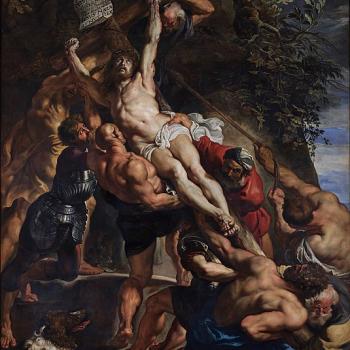As Christmas carols were sung and Christmas bells rung, Henry thought back on two tremendous tragedies. His loving wife, Frances, had been fatally burned in an accident in their own home. His son, Charles, had been severely wounded in the war.
When Frances was caught up in a fire, Henry attempted to smother the flames by throwing his arms around her. He only succeeded in severely burning himself on his face, arms and hands. He was so ill from his own burns, he could not attend his wife’s funeral. He was obliged to grow a beard because he was unable to shave his burn scarred face.
Henry’s son, Charles, was the unfortunate victim of a war bullet. Permanently disabled, Henry had to care for Charles’ day-to-day needs. His double dose of death and disability blanketed Henry with despair.
At Christmas, Henry wrote in his journal, “How inexpressibly sad are all holidays. I can make no record of these days. Better leave them wrapped in silence. Perhaps someday God will give me peace.”
A year later at Christmas, he was still mourning when he wrote, “A merry Christmas say the children, but that is no more for me.”
Finally, the following year at Christmas, Henry decided to pour out his jumbled emotions on paper. But instead of penning an entry in his journal, Henry Wadsworth Longfellow put pen to poetry and wrote the well-recognized Christmas carol, “I Heard the Bells On Christmas Day.”
After the jump, you can read the poem that turned into a beloved Christmas carol.
I heard the bells on Christmas Day
Their old, familiar carols play,
And wild and sweet
The words repeat
Of peace on earth, good-will to men!
And thought how, as the day had come,
The belfries of all Christendom
Had rolled along
The unbroken song
Of peace on earth, good-will to men!
Till, ringing, singing on its way,
The world revolved from night to day,
A voice, a chime,
A chant sublime
Of peace on earth, good-will to men!
Then from each black, accursed mouth
The cannon thundered in the South,
And with the sound
The carols drowned
Of peace on earth, good-will to men!
It was as if an earthquake rent
The hearth-stones of a continent,
And made forlorn
The households born
Of peace on earth, good-will to men!
And in despair I bowed my head;
“There is no peace on earth,” I said:
“For hate is strong,
And mocks the song
Of peace on earth, good-will to men!”
Then pealed the bells more loud and deep:
“God is not dead; nor doth he sleep!
The Wrong shall fail,
The Right prevail,
With peace on earth, good-will to men!”
Henry Wadsworth Longfellow is one of America’s most beloved poets. (He has fallen out of academic favor–largely, I believe, because his poetry is so lucid that it doesn’t need interpreting–though I hear he is coming back.) I didn’t realize he went through so much misery. But this gives the song a greater resonance.
Portrait of Henry Wadsworth Longfellow by Thomas Buchanan Read [Public domain or CC0], via Wikimedia Commons
 Let me just let Jim Priest, writing in the Daily Oklahoman, tell it:
Let me just let Jim Priest, writing in the Daily Oklahoman, tell it:















